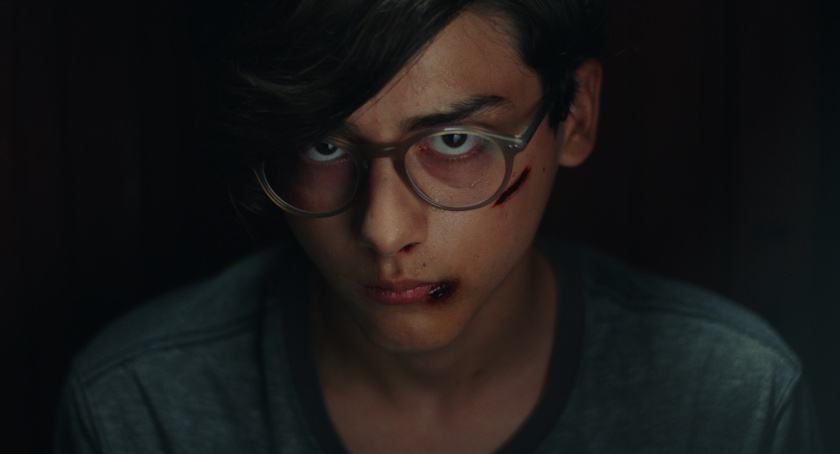Vassilis Kroustallis reviews the Argentinian LGBTQ+ feature 'Alammula' by Juan Sebastian Torales.
Santiago del Estero, proclaimed as the hottest place in South America, is not a well-represented area in Argentinian cinema -at least according to the director Juan Sebastian Torales. Torales, who is also the scriptwriter of the mysteriously set 'Almamula' gets less of the heat in either the human or the natural environment, and more of the internalized guilt -which can still burn in the languid-pace, but still well-represented film on homophobia and the feelings within.
Young Nino (Nicolás Díaz, with an immaculate haircut, and a persistent gaze throughout the film) has feelings for other boys -which tend to remain in the closet (the first frame and shot of the film). A homophobic attack by his fellow school pupils will lead his family to move to the more rural Santiago del Estero, also on the hope that Nino will get through his phase -and be ready for his Catholic confirmation.
At the same time, the rather boring area, where wood exploitation leaves an environment as barren as mundane human relationships, suddenly rekindles by a novel legend of a boy who went missing. The monster Almamula surely got him this time -and the Argentinian Babadook is now in place as an oppressive mechanism to punish young boys who dare to trend outside the forest -and the norms.
Torales builds up a completely conceivable family situation, in which the father is always absent, and the mother (María Soldi) has now the added task of providing moral education -whereas their daughter Natalia, explores her own world in the meantime.
'Almamula'lays all its cards about guilt and sin on the table from the very first start, something that diminishes the surprise value of the film. But it does have a really interesting character development story to tell. Nino grows up from frightened to curious to daring to provocative, and in his every step, we follow him as closely and relatedly as we can. His Moonlight-type mentor Malevo (Beto Frágola) is both an object to be desired and a person to carefully listen to. And sea again helps release the tension slowly built behind open doors.
Restraining his cinematography to a mostly realist aesthetic, Torales won't play with the supernatural as a separate element, using it mostly as the wild card for feelings to get out in the open. What he does play with is a generic sense of sexuality that is evident in both young and adult characters, and it ironically is set apart from the main feast and the end scene of the film (a standout in itself). 'Almamula' proceeds rather too cautiously in its symbolic exploration, but satisfies with its broad spectrum of sexually fluid (and true) reactions that sound believable and engaging at the same time.
'Almamula' screened (World Premiere) at the 73rd Berlin Film Festival - Generation 14Plus
Vassilis Kroustallis

